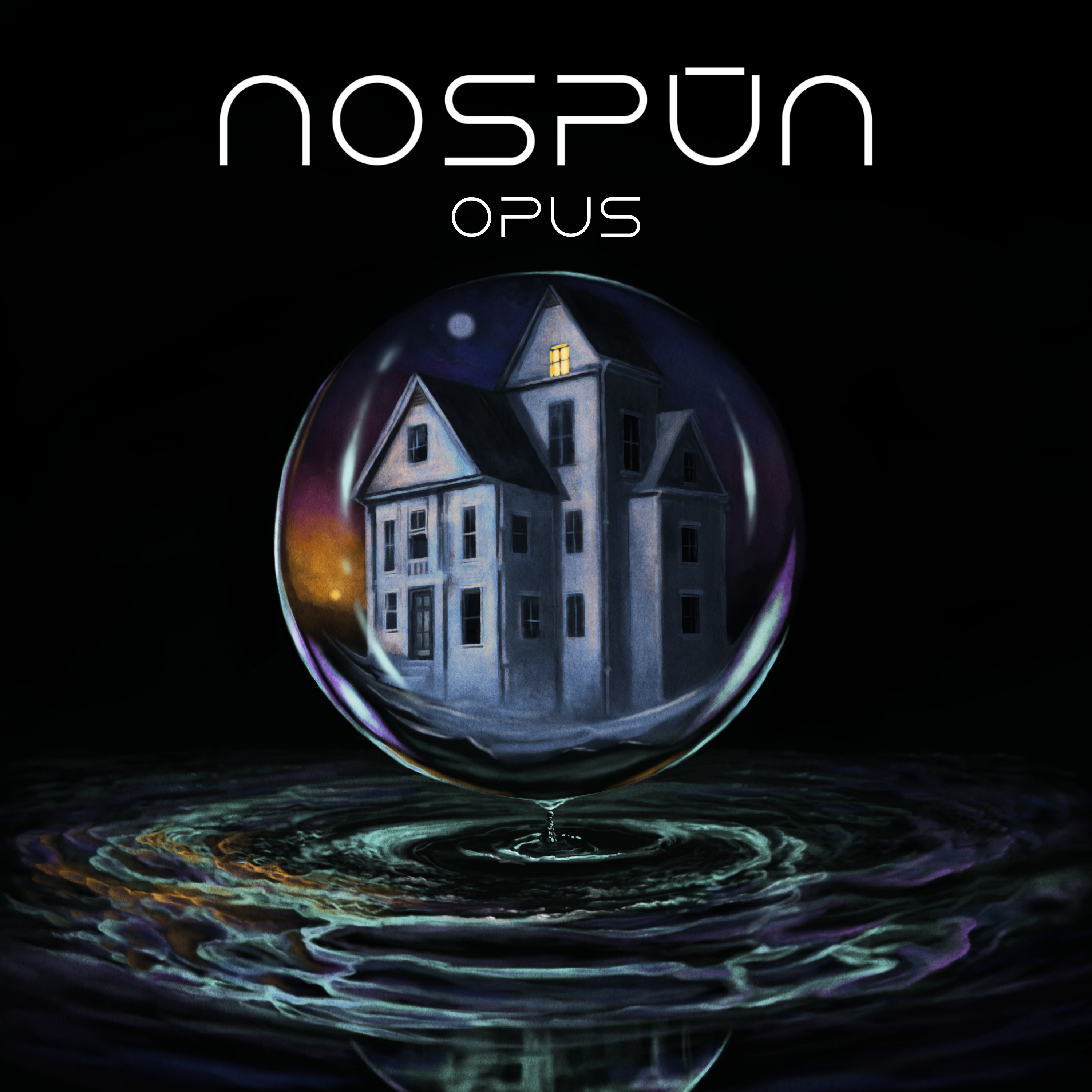Reviewing Opus by Nospūn
Published · 2–4 minutes

Rating: 9/10
I feel like I’ve stumbled upon some kind of hidden treasure — a classic prog metal concept album with theatrical vocals, groovy technical riffs, beautiful solos, and a cheesy storyline, in 2025? I’m honestly surprised I haven’t heard of these guys until now.
Listening to Opus, it’s very obvious that Nospūn1 are heavily influenced by the likes of Dream Theater, Haken, and Symphony X. In fact, the entire album seems to be a nod to the prog titans; practically every track contains sections that could belong in a DT or Haken song. Like, the opening to “The House at the Beginning” sounds like it was ripped straight out of Haken’s “Visions”, and I’m pretty sure some of the riffs in “The Death of Simpson”, “Earwyrm”, “Within the Realm of Possibility”, and “Back, Yet Forward” are referencing DT.
Lead vocalist Phillip Rich has a versatile voice that fits their musical style quite well, with the right amount of “cringe” (for lack of a better word) in the lyrics. Again, his somewhat theatrical style of clean vocals and cheesy lyrics is very typical for the genre, and reminds me of Symphony X’s Russel Allen and at times Devin Townsend. I also hear some similarities to Native Construct’s Robert Edens and Cojum Dip’s Bora Karaca, albeit without the hint of insanity that’s present in the their voices.
As for the music, it’s simply amazing — extremely technical yet groovy headbanging riffs, beautiful melodic guitar and synth solos, complex bass lines with plenty of ornamentation sprinkled around, and drumming that doesn’t feel like it’s drowning out every other instrument. Each track sounds unique and comes with the ever-shifting ideas and wide variety of soundscapes that make prog what it is.
Nospūn has nailed down a near perfect mix of complex technical passages and relatively simple motifs that just sound cool, something that’s hard to find in a lot of modern prog. Apparently it’s all self-produced too, which is even more impressive considering its phenomenal quality (need I mention how crisp and clear the bass is?).
Speaking of modern prog, what I especially like about Opus is that despite featuring frequent djent sections throughout the album, they’ve managed to integrate them incredibly well with the older, more classic prog metal style to avoid sounding like Yet Another Post-2020s Djent-Influenced Prog Artist ™. Not that I have anything against djent as a genre, but it does get annoying when every other modern prog metal piece shoves it in your face.
I will admit that I was initially wary of the album due to its cover art, which looks like exactly the kind of cover art you’d expect from the aforementioned kind of djent group. Also, no offense to the band, but I genuinely had to look them up before I continued further because every single one of their members looks like your average deep southern conservative.2 Thankfully, this does not seem to be the case, so I can enjoy their music in peace.
